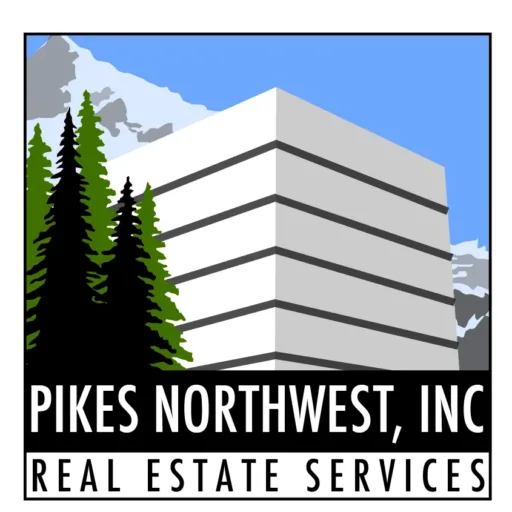
We’re property managers; it’s what we do and we like it. We help people whether it’s property owners, tenants, contractors, or vendors. We keep the wheels greased and fix the stuff that breaks and try to catch things before they become a problem. It’s a challenge and keeps everyone on their toes. It also gives us a unique perspective of properties that not that many people see. Funny thing is, few ever ask us what we think until an issue arises even though we might be able to give advice that might save money or direct an investor in another direction.
So let’s take a look at some of the issues we see and deal with at some point in our relationships with properties and owners. The focus here will be trying to fit it all in to a few square blocks of an old city center. Sometimes it seems like we’re trying to fit a size 12 foot into a size 10 shoe!
It sounds altogether cool to think about having a property in a downtown core area and to be part of “what’s happening” in a city. But it brings a bunch of challenges. Parking, for instance, and the ongoing fights between factions in many cities makes it almost impossible to determine whether a building owner will have parking available to a variety of tenants. If you want a mix of retail, restaurants, and apartments, parking is critical. But many cities are building apartments with next to zero allocation for parking making a tight mix tighter. Therefore, current building owners in a city core lose value because of city policy. Oh, and those policies change with the wind or the next election of the city council.
Cities are increasingly strapped for cash. You bought the property comfortable knowing you are sitting right next to a public parking lot. Parking spaces are cheap and readily available. Now you find out that the city is planning on selling the lot to a private company who intends to increase the parking space rent. All existing parking contracts would be canceled. The value of your property could be negatively affected by the lack of cheap parking. Hopefully your leases don’t have guarantees for parking and parking rates.
City centers are usually made up of older building and they do have a lot of character. I have to admit loving the different styles in cities all over the state of Oregon. Obviously the older buildings have maintenance issues that go well beyond those found in newer construction. Any purchase should have an extensive due diligence inspection and a review of maintenance records for the last 10 years. Even then, underground masonry can be found that hasn’t been seen in many decades and may rear its ugly head when that 100 (or 500) year flood comes.
Just requesting a building permit may open a can of worms. Untouched wiring needs to be left untouched or must be completely replaced often for the entire building. The same can be true for plumbing. Foundations that are stone many layers deep are ok until a load is changed then the entire foundation must be updated.
Downtown areas are living off of infrastructure that was put in place up to 100 years ago. Water mains breaking are not unusual. They just can’t handle the pressure or are just plain worn out. As cities fight over dollars and politicians try to get elected, no one puts money into water systems or infrastructure in general. But if you lose water or worse you experience a flood, it’s your mess! Insurance premiums apply and are going up based on experience.
Older properties can be subject to those who what to preserve older properties by, unbeknownst to you, applying to have it placed on a register for Historic Properties. If approved, limitations on what can be done to the properties come into effect that you didn’t plan on when you purchased it in the first place.
Some years ago we all went through asbestos abatement and presumably it’s all gone. Not so fast! It’s not. When layer upon layer is removed from say walls or floors for a remodel, asbestos may be found and guess what, you’re now forced to stop work and start an abatement program. Time and money go out the window.
We’ve talked about older buildings so now let’s talk about buildings in a downtown area in general.
A common scene in most cities of any size includes vagrants. The store fronts of many commercial buildings are blocked by people making a mess. They’re breaking into building after hours and tearing the insides up. Occupants and tenants are afraid and worry for their safety. Public policy as currently articulated will not solve the issue. Police Departments are ham strung. Property owners are losing income and therefore value.
How about those side deals, you know, those agreements that everybody seems to know about but were never written up. Your property has tenants that leave by 6pm Monday through Friday. Your parking lot, with signs saying parking is exclusively for your tenants, is adjacent to a bar. It is understood that the bar lets its patrons use the lot after 6pm and the bar owner makes sure it’s empty next day. Those “agreements” need to be memorialized/signed and administered/handled and that’s where a good property manager comes in.
Whether you’re new at buying commercial property or have been at it for years having a dream team at your side is the way to go. Recently an experienced buyer from Portland bought a property here in Salem and one of the people on their team that helped with the decision was an experienced property manager.
So what makes up the ideal dream team? In part, it’s a Broker you know and trust, an Attorney that is knowledgeable in real property, and a Property Manager. The Property Manager is going to be there after the sale to take care of you, the property, and the tenants. But more on the dream team another day.

 My name is Alyssa Flores. I was raised here in Salem, Oregon. I’ve been working in property management for the past 6 years, and am excited to be part of the Pikes Northwest team. In my spare time I enjoy being with my family and friends.
My name is Alyssa Flores. I was raised here in Salem, Oregon. I’ve been working in property management for the past 6 years, and am excited to be part of the Pikes Northwest team. In my spare time I enjoy being with my family and friends. My experience in property management spans 15 plus years including selling homes in Southern CA. I relocated back to the NW after 20 plus years and I’m really enjoying the beauty of the seasons! I’m excited to add more Commercial Property Management experience to my skill set!
My experience in property management spans 15 plus years including selling homes in Southern CA. I relocated back to the NW after 20 plus years and I’m really enjoying the beauty of the seasons! I’m excited to add more Commercial Property Management experience to my skill set!